
Transcript
I’m here to talk you about the transfer placement of an ESE student and the IEP meeting. I am deaf mother with a speech and language impairment. I have a son who attended third grade at Grady Elementary School last year. My son is hearing and has an expressive language disorder.
My son was struggling in his academics and experiencing frustration in his behavior due to lack of proper accommodations. Grady did not provide him adequate, individualized speech and language therapy. Grady also declined occupational therapy that we requested initially in his IEP. The speech and language therapist, who also served as our IEP case manager, did not intervene or work closely with his regular teacher and other school professionals, as well as with me and my husband.
Throughout the year, the teacher reported the same complaints about my son’s behavior such as not following directions in class and not listening attentively in class. On the academics level such as reading, the teacher reported that my son had difficulty answering higher order questions. In math, the teacher reported that my son had difficulty understanding word problems. In writing, the teacher reported that my son had difficulty putting his own thoughts down on paper. All of these complaints are reflections as a result of an expressive language disorder. The teacher did not agree or listen to me as to the reason for my son’s issues. My son did not have a learning disability. Due to his perseverance and hard work, he passed his FCAT and was promoted to the next grade level against his teacher’s negative prediction.
During the last few months of the year, I brought in advocates to help me and guide me not only as a parent advocating for my son, but also to accommodate me.
Towards the end of the year, in addition to the complaints that I just mentioned, the teacher stated that my son was not working cooperatively with others. She also reported in my son’s report card, without our knowledge during the quarter, that he was showing lack of respect to authority. Research has shown a common mistake made by people is misunderstanding the child’s language disorder behavioral difficulties as a bad attitude, misbehavior, or conflict.
I’m speaking to you today because over 40 years ago, I attended Grady Elementary before the law was mandated and I had adequate, individualized speech and language therapy. Along with other accommodations, my treatment continued throughout my public school years here in Hillsborough County as well as in my college years.
Long term, adequate, individualized speech and language therapy and occupational therapy will greatly benefit my son’s education and social life as well as aiding other language impaired children. There is a big difference between hearing what you are saying and understanding what you are saying. Proper treatment of a child’s language development will have a strong impact on the development of a child’s personality and his ability to face the challenges and interact with others. Thank you for listening.
*Note on language, like most Deaf, deaf, and hard hearing, people, Mrs. Tossoonian uses Identity First Language, and as always we defer to and respect the language choice of the individual.
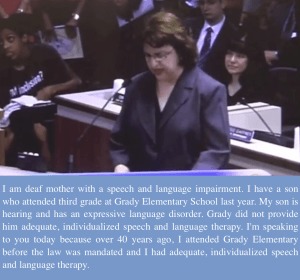
For more videos from the June 16, 2013 Hillsborough County School Board Meeting:
I Am Here To Make a Difference for My People
Disability and Civil Rights: Standing on the Right Side of History

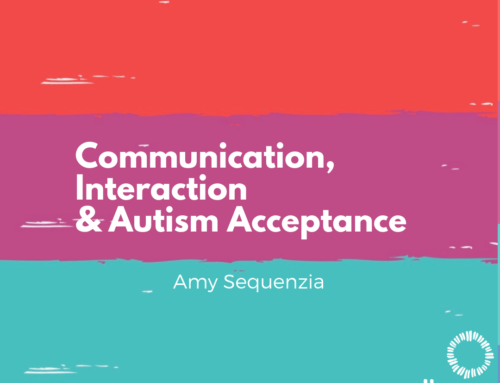
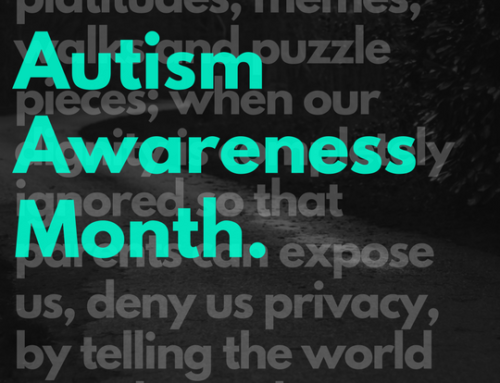
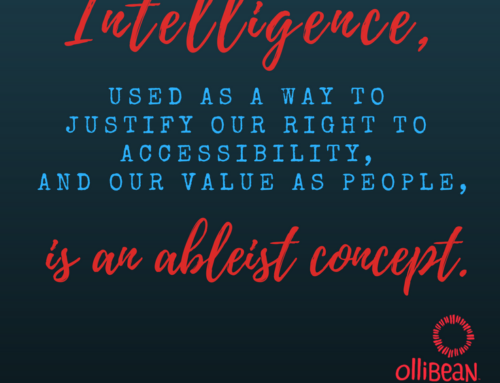
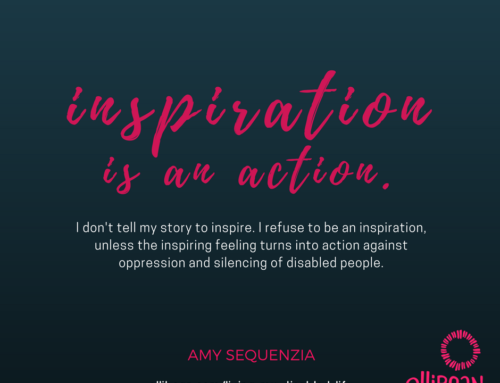

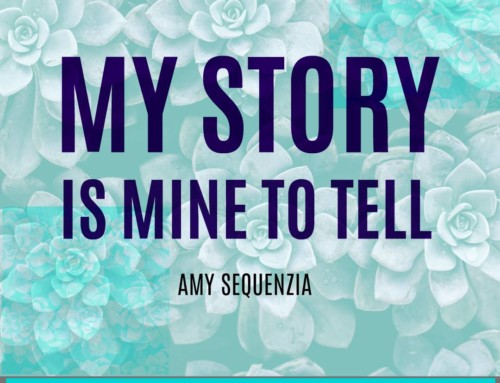
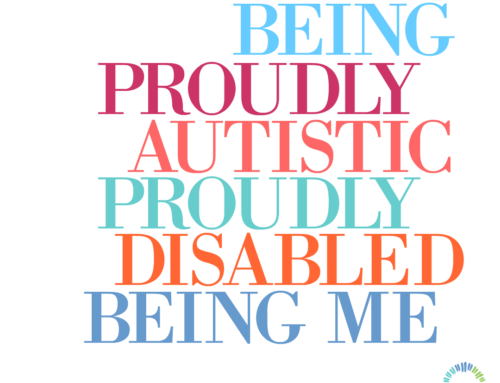

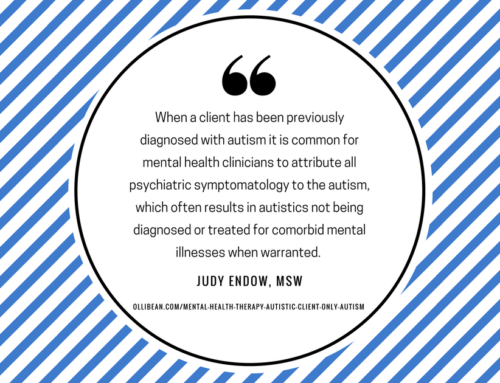
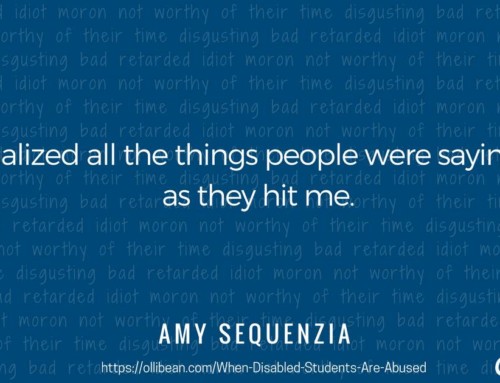

Leave A Comment